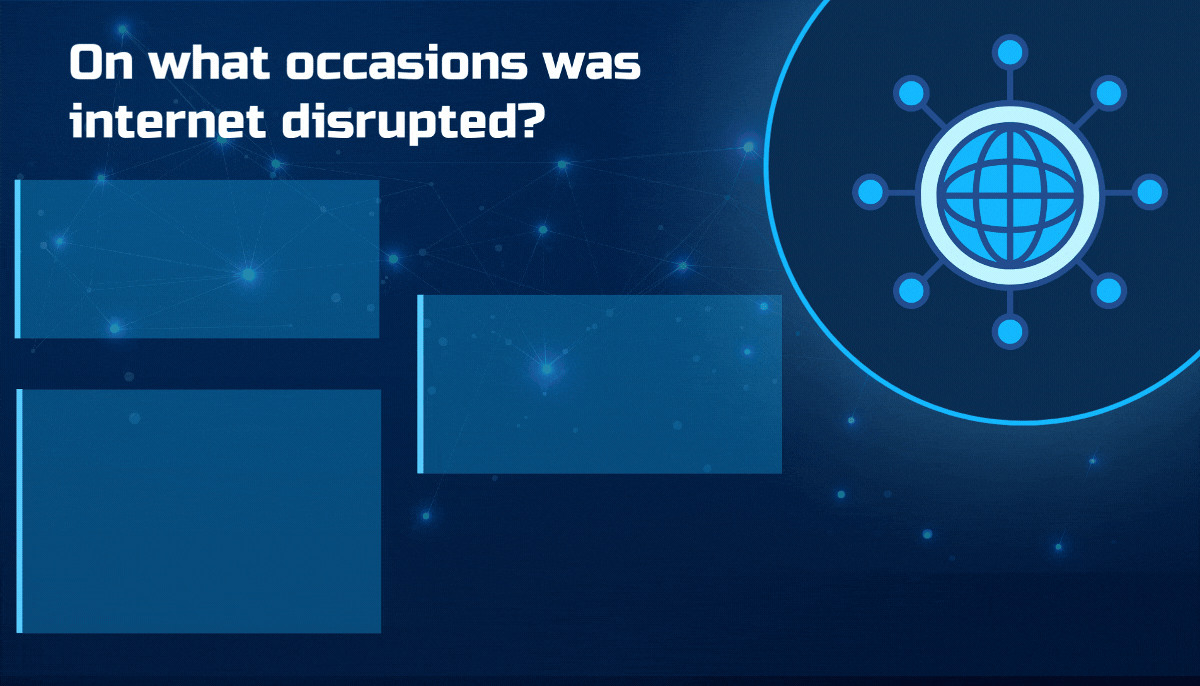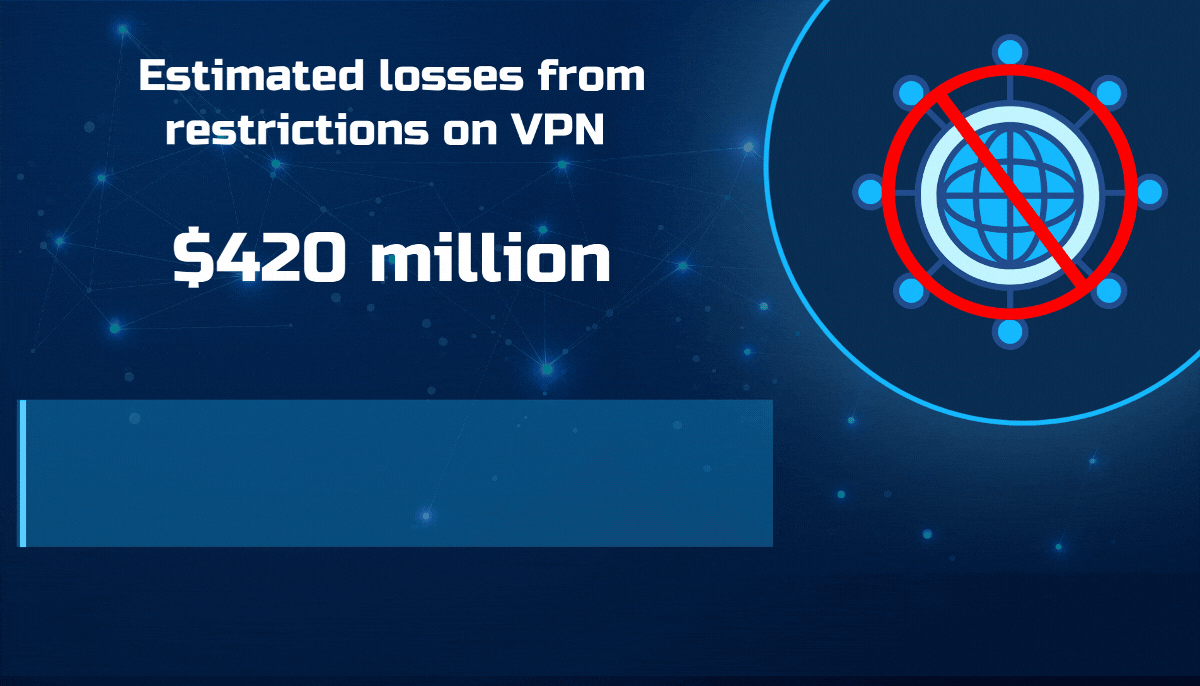Freelancer Zainub Khatib felt helpless in her home in Karachi, Pakistan’s financial hub, as she tried her best to deliver her project to an international client while her internet kept faltering repeatedly. Meanwhile, Syeda Aatika, a university student in Lahore, struggled to submit her end-of-year assignments because her home Wi-Fi network was down for the third consecutive day.
These are not isolated incidents but snapshots of a bigger problem that gripped the entire country throughout 2024 — a year plagued by persistent internet troubles that not only disrupted Pakistanis’ daily lives but slowed down the IT-based economy and challenged the nation’s digital future.
Pakistan Software Houses Association (P@SHA) Chairman Sajjad Mustafa Syed told Geo.tv that the country ranks among the top freelancing nations and has the capacity to grow drastically — if the hurdles are removed.

“We are one of the fastest-growing export sectors in our economy; the largest employers of youth, empowering over 600,000 skilled labour force, and 2.37 million freelancers,” he said, citing a Pakistan Freelancers Association (PAFLA) and Asian Development Bank’s (ADB) report.
“Around 3 million households today are dependent on IT and IT-related exports. With consistent policies and stable infrastructure, this figure has the potential to reach $15 billion by 2030,” he added.
Despite such potential to thrive in the digital sphere, Pakistan bore the brunt of recurring internet outages and disruptions throughout 2024 while the rest of the world became increasingly reliant on internet connectivity.
This brought forward some important issues in infrastructure, governance, and policymaking as these disruptions affected businesses, education, and the country’s position in the global IT sector.

In 2023, internet disruptions were already gaining momentum as a concerning issue for the entire country. However, 2024 is now coming to an end, and, looking back, one can’t help but notice how internet disruptions worsened into a nationwide crisis.
From complete shutdowns during political protests to technical failures in undersea cables, connectivity was anything but stable. As a result, nationwide disruptions became alarmingly common, particularly when authorities sought to curb dissent.
Let’s dive a little deeper into the major events that shaped the internet connectivity crisis that grappled the country all year long.
Poll, protests, unrest
February: As Pakistan observed nationwide general elections on February 8, internet and mobile services were disrupted. Journalists, both local and international, struggled with media coverage of the election, including the results transmission.
However, officials linked the forced internet shutdown to security concerns after several people were killed in militant attacks on the eve of elections.
Days after turbulent elections, on February 10, access to social media platform X, formerly known as Twitter, was blocked by authorities citing national security concerns once again.

The platform remains largely inaccessible without a virtual private network (VPN) despite activists, civil society members, and several court orders calling for the ban to be removed.
October: The authorities suspended mobile phone and internet services in Islamabad and other areas as part of security measures during an anti-government rally organised on October 4 by the supporters of imprisoned former prime minister Imran Khan.
November: The federal capital on November 24 to 27 went into lockdown with partially suspended mobile phone and internet services yet again as PTI leaders and supporters took to the streets with protests calling for the release of the party’s founder.
Undersea cables
February: South East Asia–Middle East–Western Europe 5 (SEA-ME-WE 5), one of the eight submarine cables that connect Pakistan with countries including Bangladesh, Djibouti, Egypt, and France among others, was cut near Egypt.
This led to significantly slower internet speeds faced by users across the country.
June: On June 17, the SEA-ME-WE 4 cable experienced a fault near Karachi, causing a substantial loss of data capacity — approximately 1,500 Gbps. This disruption led to nationwide internet slowdowns, affecting both individual users and businesses.
August: One of the Asia-Africa-Europe submarine cables suffered a fault near Karachi on August 17 which continued for 10 days, further compounding connectivity issues within the country.
Firewall
July: The government held the first trial run of a national firewall which was aimed at monitoring and regulating online content and social media platforms as part of an effort to curb the spread of fake news.
This resulted in the slowing down of the internet and social media platforms.
August: The government conducted the second trial of the national firewall which, once again, led to significant internet slowdowns and disruptions, adversely affecting business operations and raising concerns about censorship and economic impact.
While these were the major events that resulted in internet connectivity loss or disruptions, recurrent incidents regarding this issue continued in the background with users across the country facing internet slowdowns or difficulties while accessing social media platforms.
Additionally, these disruptions forced internet users to shift to mobile data or 3G and 4G internet to maintain internet connectivity. According to the PTA report, data usage increased by 24.2%, reaching 25,141 in FY 2023-24.

As the year of internet disruptions went on, users turned to VPNs to be rescued from the whirlwind of constant restrictions on internet and social media access.
However, they were slammed with yet another set of difficulties as the Pakistan Telecommunication Authority (PTA) in August, asked IT companies, call centres, freelancers, foreign missions, and embassies to register their VPNs, saying that this was part of an effort to curb its misuse and tackle security concerns.

The regulatory body found little success in its campaign. This was followed by the Ministry of Interior calling for a ban on VPNs, citing “increasing risks to national security and public morality”.
But, as the Prevention of Electronic Crimes Act (PECA) 2016 doesn’t authorise such bans, the PTA introduced regulatory measures, balancing cybersecurity concerns with the needs of the IT sector, instead. Additionally, the regulatory body set November 30 as the deadline to get VPNs registered, but then extended it. So far, more than 31,000 VPNs have been registered with the authority.
In its latest efforts to streamline the registration process, the PTA introduced a new licencing category. This allows companies to apply for permits to provide VPN services.
This move aims to allow authorities to monitor VPN traffic more effectively, addressing concerns regarding the anonymity that proxy networks offer.
In an official statement on December 19, the PTA announced the resumption of issuing a Class Licence for Data services to service providers in Pakistan.
“VPN service providers are required to obtain Class Licence for Data (Data Services) to provide VPN and related services,” it read.
The authority already provided licences for internet, cellular services, and vehicle tracking.
Now, with its new VPN licencing framework, local companies will be required to comply with Pakistan’s laws, terms of their licences, and regulatory provisions while offering proxy services to users.

Such internet shutdowns and outages have been widely criticised by businesses and rights groups, who argue that this stifled communication and economic activity across the country in 2024.
“Internet disruptions not only deny access to information and myriad of services to citizens but are economically costly and damage Pakistan’s reputation as a reliable player in the global IT industry,” Digital Rights Foundation’s (DRF) Executive Director Nighat Dad told Geo.tv.
While describing the impact of these disruptions which was felt most acutely in the economic realm, Dad highlighted that internet shutdowns cost Pakistan an economic loss of Rs65 billion in 2023 alone.
She emphasised that “an hour of internet shutdown can IT industry cost up to $1 million”.
The digital rights advocate also acknowledged that Pakistan has built a reputation of being a cost-effective yet efficient market with a relevant skill set which “partly explains why the overall volume of the country’s IT exports have continued to increase”.

“However, the persistent internet disruptions will cause long-term reputational damage to the freelancer industry, making it difficult for them to secure contracts in future.
“In fact, there have been reports of freelancers losing contracts or getting downgraded on online platforms due to their inability to timely meet deadlines of their clients.”
Such a loss was experienced by Zainub Khatib, a Karachi-based freelance business development manager, who told Geo.tv that she lost an international client as well as the $1,700 he was supposed to pay her during this year’s wave of unprecedented internet outages.
“The internet was not working at all, so I was not able to communicate with my client,” Khatib said. “I was not able to share videos of my project. I was not able to share screen recordings. We were not even able to have a Zoom meeting.”
She revealed that she often uses the Meta-owned instant messaging app, WhatsApp, to communicate with her clients abroad for a seamless workflow. However, during the outage, the app was also not working.
She then tried to use a VPN to stay connected which she said “was such a fail”.
“Since I could not get in touch with him or show him the prior project that I needed to submit. He was like, ‘Okay, we do not need to continue. I cannot trust you with another project because of the internet outage’,” she said.

Internet shutdowns, often implemented to address security concerns, have drawn criticism for being overused and poorly planned. Critics argue that these shutdowns disproportionately harm ordinary citizens and businesses while doing little to address the underlying security threats.
Wireless and Internet Service Providers Association of Pakistan (WISPAP) Chairman Shahzad Arshad said that the events of 2024 exposed glaring vulnerabilities in the country’s digital infrastructure.
Arshad said that for freelance workers — like Khatib — “every minute of downtime is translated into lost revenue” which also leads to a “decline in confidence in Pakistani businesses as trustworthy outsourcing partners are all consequences of disruptions”.

“Pakistan thus runs the risk of losing market share in a very competitive industry where nations like Bangladesh and India are prospering because of their strong digital infrastructure,” Arshad said.
“Pakistan, which has a growing number of independent contractors, is frequently criticised for having erratic connectivity, which discourages foreign companies from outsourcing work here,” he added.
On the other hand, P@sha’s Mustafa highlighted that, economically, the country faces an uphill battle in rebuilding trust in its digital sectors. Businesses and investors are wary of the frequent disruptions, and it will take sustained efforts to restore confidence.
“Pakistan incurs substantial economic losses due to internet disruptions, estimated at approximately Rs1.3 billion per day. Another estimate of 2023, accounts for a loss of $1 million per hour internet outage,” he said.
“The potential short- and medium-term economic impact of restrictions on VPN are significant and lack of clarity on internet policy, with estimated losses of $420 million.”

“This conservative estimate includes $320 million in direct revenue loss from reduced IT export efficiency, $20 million in compliance costs for companies seeking alternatives, and $126 million from a 30% productivity decline among freelancers.”
Meanwhile, Khatib — who is also a social media influencer — said that she used to enjoy working remotely from Pakistan because of the “financial freedom” and believed that the country was full of opportunities for freelance workers.
However, recent developments in the IT sector, such as the firewall and the VPN registration, have led her to change her opinion. “I just realised that [after recurring nationwide internet outages] I may not be able to continue my career based in Pakistan so I am now looking to move out of Pakistan.”

Despite the grim outlook, tech industry leaders and digital rights experts still see some hope for Pakistan in overcoming its internet woes as they believe that investing in advanced infrastructure and partnerships may be the way out of this crisis.
“Investing in additional submarine cable systems would reduce the risk of disruptions caused by damage to specific cables. There is an urgent need for investments in redundant cable systems to improve resilience in case of outages,” stressed Dad.

She said that the government policies “should incentivise private sector investments in new connectivity projects, such as additional cables or alternative routes. Public-private partnerships can spread the financial burden”.
She further noted that while the “government has occasionally blamed damages to undersea cables for internet disruptions, experts have cast doubt on these claims, particularly amid reports that the newly installed firewall may have contributed to degraded internet quality”.
While addressing the use of internet shutdowns to manage political unrest in the country, Dad said: “Increasing the number of sea cables will not address the issue if internet shutdowns continue to be used for political objectives, such as preventing opposition from sharing information. The issue of shutdowns warrants transparency and accountability on the government’s part.”
Meanwhile, Arshad urged for the establishment of “cross-border terrestrial fibre optic” links with adjacent countries such as China, Iran, and Afghanistan, to provide alternate paths for connectivity instead of over-relying on undersea cables.
Additionally, the WISPAP chief urged for the promotion of satellite-based internet solutions, particularly in rural and underdeveloped areas, as a backup to terrestrial and underwater connections.
This potentially hints at Minister of State for IT and Telecommunication Shaza Fatima Khawaja’s comments that came during a recent meeting of the Senate Standing Committee meeting on IT and Telecommunication.
“We are in talks with Starlink to bring them to Pakistan,” said Khawaja, as per a The News report, earlier this month.
Furthermore, Arshad also said that collaborations among Internet Service Providers (ISPs), telecom operators, and international players must be encouraged to fund and install redundant infrastructure in the country.

Pakistan’s internet troubles in 2024 serve as a wake-up call for the nation. The disruptions that plagued the entire year highlighted systematic weaknesses that, if left unaddressed, could hinder the country’s progress in an increasingly digital world.
However, these digital challenges can be transformed into opportunities to reshape its digital future and unlock economic growth.
Dad sees this crisis as an opportunity for the country to address the significant digital skills gap — where 80% of IT graduates lack market-ready abilities — through targeted education and training programmes that could potentially add Rs2.8 trillion to its gross domestic product by 2030.
“This focus on enhancing digital capabilities will enable Pakistan to foster inclusivity, support a knowledge-based economy, and improve service delivery across sectors,” she said.
“Moreover, the development of digital exports, including mobile apps and AI-powered solutions, presents a path to an additional $6.6 billion in annual export revenue by 2030.”

She also urged for innovation to be encouraged through initiatives like startup accelerators and incubation centres that will “catalyse tech-based entrepreneurship and job creation”.
“Partnerships with global players, such as Google, have already demonstrated success in equipping businesses with tools and providing digital skills training to individuals,” she revealed. “These measures collectively support Pakistan’s transition from traditional industries to a tech-driven economy, ensuring long-term resilience and global competitiveness.”
A robust and reliable internet infrastructure is essential for economic growth, social development, and global competitiveness. Addressing the challenges ahead will require a concerted effort from the government, businesses, and citizens.
As freelancers like Khatib struggle to rebuild their businesses in the country, one thing is clear — Pakistan’s digital future hangs in the balance. This year proved to be a lesson for the entire country and, taking decisive action, it has the opportunity to transform its challenges into a foundation for a more connected, prosperous future.
Husba Thanvi is a staffer at Geo.tv. She posts on X @HusbaThanvi
Header and thumbnail illustration by Geo.tv

